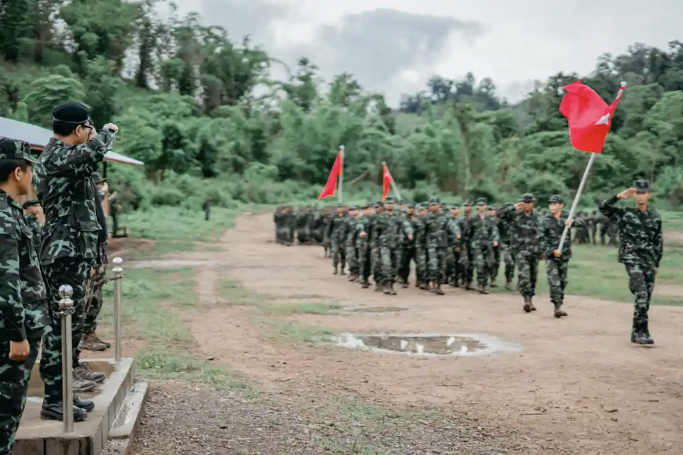The shocking executions of four democracy activists by the Myanmar junta appears to have ratcheted up the country’s resistance movement in a do-or-die push to oust the military.
A number of People’s Defence Forces (PDF) have confirmed they are stepping up their actions against junta targets, including the judiciary, in a direct response to the executions announced by the junta on 25 July.
Those executed for what the junta claimed were “terror acts” were democracy campaigner Kyaw Min Yu, better known as Jimmy, and former National League for Democracy (NLD) lawmaker and hip-hop artist Phyo Zeya Thaw, an ally of ousted leader Aung San Suu Kyi, and activists Hla Myo Aung and Aung Thura Zaw.
The United Resistance Force (URF) – a Yangon-based PDF – announced last week it was stepping up the “Yangon Operation Blood Debt Reclamation” campaign and will be attacking more targets connected with the judiciary that enacts death sentences and they claim is rife with injustice.
Urban guerrillas in Yangon confirmed a bomb attack on a military outpost near the Mingaladon township courthouse on the night of 29 July. On that night, URF and its allies also attacked the staff housing complex in Insein township with a hand grenade, killing at least two military personnel.
In a different part of the country, Sagaing Town’s administrative offices were attacked on 1 August killing four junta soldiers. The operation was jointly carried out by DNDF-Wetlet and the People's Dictatorship Revolutionary Force (PDRF) as the first attack in Operation Hammurabi, which was launched to repay the blood debt the junta incurred when they executed the pro-democracy activists.
Attacks by resistance forces in Myanmar have reportedly increased since state media announced the executions.
The “murder by execution” of the four pro-democracy activists has prompted local and international outcry, with protesters taking to the streets in a number of capitals including Bangkok, Manila and Seoul. Even the UN Security Council has condemned the actions.
The Association of South East Asian Nations (ASEAN) appears to be losing patience with the Myanmar junta in the wake of the executions. The chair of ASEAN, Cambodia, has called on the junta not to execute any more activists sitting on “death row”. The action by the Myanmar generals has raised questions as to whether ASEAN regional bloc's "five-point consensus" plan on the Myanmar crisis is dead in the water. Agreed in April last year, the plan calls for an immediate end to violence and dialogue between the army and coup opponents.
Cambodian Prime Minister Hun Sen, opening the ASEAN foreign ministers' meeting last week was blunt in his assessment – as an empty chair was left for Myanmar in the room.
"If more prisoners are to be executed, we will be forced to rethink our role vis a vis ASEAN's five-point consensus," he said, noting that the regional bloc "disappointed and disturbed by the execution of these opposition activists despite the appeals from me and others for the death sentences to be reconsidered for the sake of political dialogue, peace and reconciliation."
Reporting: Mizzima, DVB, AFP












